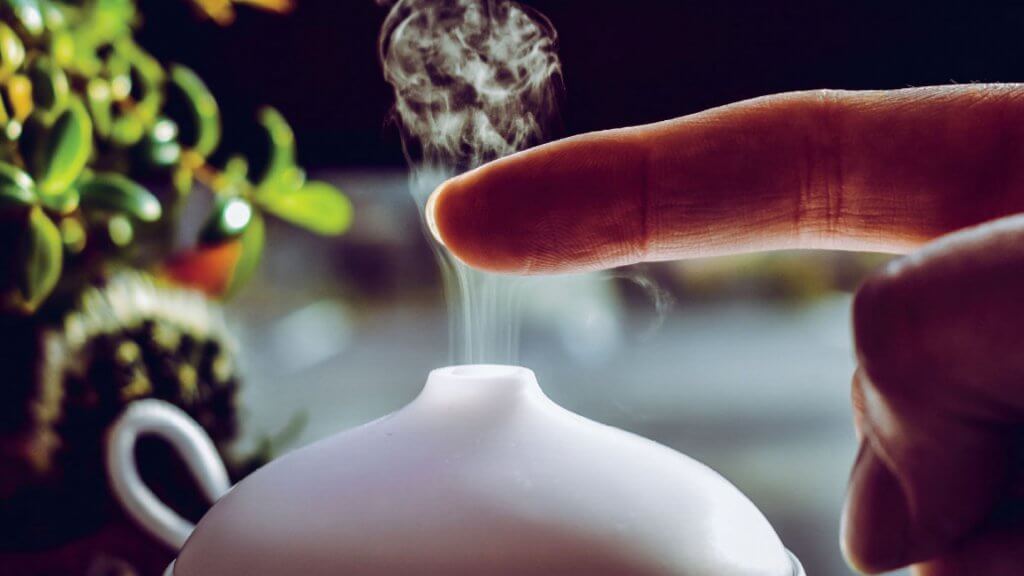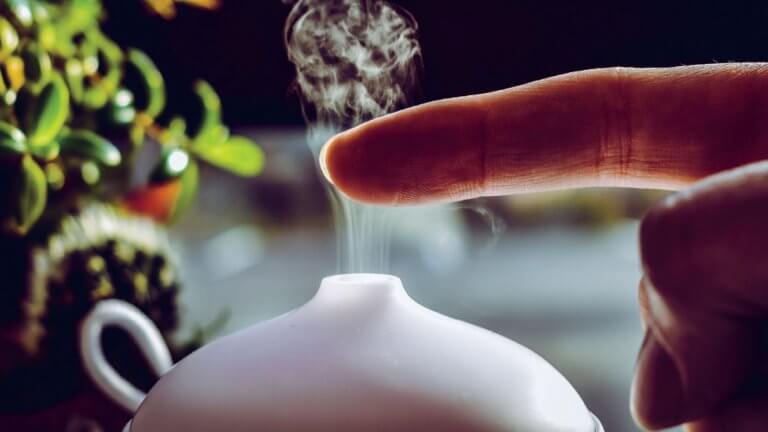When David, a 30-year-old actor from Toronto, walked by a Saje Natural Wellness, he couldn’t help but go in to explore the store. It was the calm scent that enticed him. Saje is a Canadian retailer of essential oils and skincare products, and if you’ve ever walked by any one of their 52 retail locations across Canada (including one at Devonshire Mall in Windsor) you’re probably familiar with the kind of inviting aroma that is bound to draw anyone into the shop
David ended up purchasing an essential oil diffuser—a device that emits soft vapours into a room—for his apartment. “I find that a diffuser is great for creating a relaxing experience at home and not too expensive depending on which one you get.” The essential oil diffusers at Saje range between $60 to a couple hundred dollars, and the price is often determined by how long the diffuser burns. David purchased his for around $60 for a three-hour burn.
With the essential oil diffuser market projected to reach $2.2 billion USD by 2025 (up from $1.22 billion in 2016 according to Grand View Research Inc.), essential oil diffusers are increasingly becoming a household item. Many advocates of the diffusers claim that the scents—such as chamomile, cedarwood, peppermint, rose, eucalyptus, and lavender—help to reduce stress and anxiety by stimulating blood flow. Additionally, the Saje website states that depending on the oil you use, diffusers have the potential to improve air quality, and give you a better night’s rest.
For some people, the potential health benefits and range of smells that an oil-infused diffuser offers is enough to replace the ambience of a candle. “I used to buy a lot of candles. The smell of apple cinnamon always reminded me of home so I would buy that scent when I was in college,” says Comeau. But since purchasing his essential oil diffuser four years ago, he has stopped burning three-wick candles in his home. And perhaps it’s for the best.
According to a post by Pure Air Systems—a U.S.-based air-purifying company that has been in the business for 34 years—most candles use a standard cotton/wax wick. As it burns, the candle soot easily becomes airborne and you’ll notice a black buildup of it when you change out the furnace filter in your heating, ventilation, and air conditioning system. Most people don’t realize that burning a candle could have such an impact on home air quality. “The flame is so small,” says Adam Kerr, a 34-year-old photographer whose girlfriend burns a candle regularly in their home office, “I’d never even have thought about it damaging the furnace filter.” Over time, however, burning candles can become a health issue, especially if you have respiratory issues or severe allergies
There are several ways to enjoy burning candles without them damaging your home. One way to make sure less soot is formed is to trim the wick to an eighth of an inch. Also, using soy wax candles will release less soot in your home. And since soy wax is a natural and renewable resource, it’s better for the environment than paraffin wax, which is derived from petroleum. If you’re a fan of burning candles, the healthiest option may be to use unscented soy candles, which are void of any essential oils or added scents
WebMD Health News reports that essential oils like eucalyptus and peppermint contain a compound called phenol, which can irritate the respiratory tract in both adults and babies. If a person already has respiratory health challenges, essential oil diffusers could worsen them. The health consequences aren’t limited to humans. Kia Benson, a veterinarian at Pet Poison Helpline, states that essential oil diffusers may cause respiratory irritation to pets, especially to cats. If a cat develops watery eyes or has difficulty breathing and begins panting, coughing, or wheezing, Benson recommends that the owner take their cat outdoors for fresh air immediately. Similar to candles, the diffusers may not be the best for air quality after all
There is also limited evidence and peer-reviewed research that shows the health benefits of using diffusers. If you visit the dõTERRA company website—a major player in the essential oil market—the language about the benefits inhaling essential oils is vague. This may be in part due to steps the U.S. Food and Drug Administration (FDA) took in 2014, when it sent warning letters to a handful of essential oil companies for making unsubstantiated claims that essential oils could treat some clinical diseases. A rep from dõTERRA confirmed that the company now complies with regulatory requirements set out by both the U.S. FDA and Health Canada.
While it’s good to be aware of the health repercussions of chronically using diffusers and candles, both can provide a relaxing experience in the home when used in moderation. Whether you burn a candle or use an oil-infused diffuser, it’s wise to check your air filter every few months to see if it needs replacing. If, however, air quality is your priority over good ambience and a calming experience, then it may be best to skip both and just crack open a window instead
For online information, visit:






